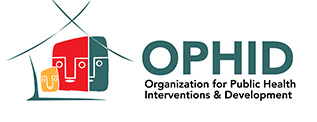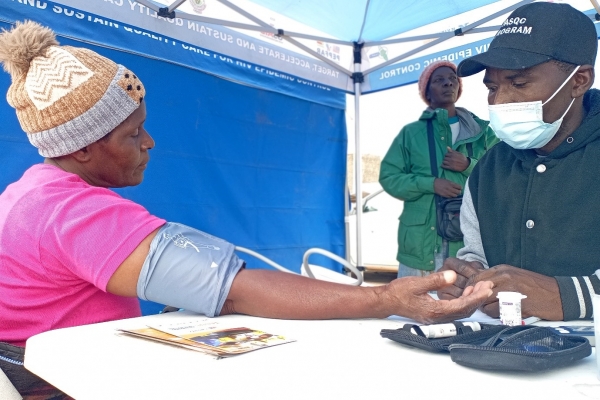Non-communicable diseases (NCD’s) are the leading cause of death worldwide and present a huge threat to health and development, particularly in low- and middle-income countries. People living with HIV (PLHIV) are more likely to develop NCDs due to the stimulation of inflammatory markers and adverse events associated with some antiretroviral medicines used to treat HIV. Modifiable risk factors for NCDs include tobacco use, physical inactivity, an unhealthy diet, and harmful alcohol use.
With support from Sanofi, Organization for Public Health Interventions and Development (OPHID) has been scaling up screening of NCDs among at risk adults and PLHIV aged 40 years + and linking those diagnosed with Hypertension and Diabetes Mellitus to health education, treatment, and adherence services. Sanofi is a global healthcare company, which is engaged in the discovery, development, manufacturing, and marketing of a wide range of medicines and vaccines. In partnership with healthcare authorities and local partners Sanofi has been working to support the delivery of comprehensive care in low- and middle-income countries. Since early 2022, the organization has been jointly developing comprehensive diabetes care solution. In Zimbabwe, Sanofi partnered OPHID since October 2022 in the drive to provide an integrated response to HIV and NCDs with an overall objective to provide comprehensive health services to at risk adults from the general population and PLHIV through integrated screening and linkage to care and treatment.
OPHID is implementing the USAID funded Target, Accelerate, and Sustain Quality Care (TASQC) for HIV epidemic control in four provinces, Bulawayo, Harare (Chitungwiza), Matabeleland South, and Masvingo. The TASQC program is aimed at strengthening and improving the quality of care in HIV services at all levels of the health care system from national level through to community level. As of April - July 2023, OPHID supported 345 953 people living with HIV (PLHIV). The integration of Noncommunicable Diseases (NCDs) and HIV is crucial for OPHID considering the number of clients that the organization supports with care and treatment services. HIV and NCDs share many risk factors and common challenges. People living with HIV are at a higher risk of developing NCDs such as cardiovascular diseases, diabetes, and certain types of cancer. By integrating NCDs into the existing HIV programs, shared risk factors and comprehensive care to clients can be extended.
With an already established infrastructure, trained healthcare providers and community outreach programs, OPHID’s implementation of the project since October 2022 in Chitungwiza and Bulawayo has been fruitful. The program has screened a total of 69 719 for Hypertension and Diabetes Mellitus and 37% (25 746) were recorded as PLHIV. Individuals diagnosed with hypertension and diabetes mellitus are linked to health education, treatment, and adherence services. Additionally, OPHID has been empowering community healthcare workers through trainings to assess risk factors, conduct screenings using automated machines, and provide health education. The Ministry of Health and Child Care also received technical assistance in integrating NCDs into HIV management and essential technologies such as blood pressure machines and glucometers have been provided to support this integration in OPHID supported health facilities.
To ensure that no one is left behind, door-to-door community screenings with the help of community outreach agents have been part of the project. Recently, OPHID has expanded its services through workplace interventions and wellness days. Support has been extended to organizations such as PPC, Delta, ZETDC, schools, government employees, and churches. By providing health education on reducing risk factors in the community, this initiative has successfully reached more men, who are often considered to have poor health-seeking behaviors due to work commitments.
Through community outreach activities one beneficiary says this.
"I am aware that us who live with HIV are more susceptible to developing NCDs unlike the general population and that’s why it’s always good for me to get screened and l decided not to let this pass - the best part of it is that it’s being done for free and they have come to meet us at our work place, l don't have time to go to facilities that offer these services and usually one has to pay for it so l am grateful for this kind of service,"
In conclusion, the integration of Noncommunicable Diseases and HIV is of utmost importance for OPHID. By addressing shared risk factors, optimizing resources, aligning with global health priorities, and improving patient outcomes, this integration ensures comprehensive and holistic care for individuals living with HIV and NCDs. OPHID's commitment to this integration demonstrates dedication to providing high-quality healthcare services and improving the lives of clients.


